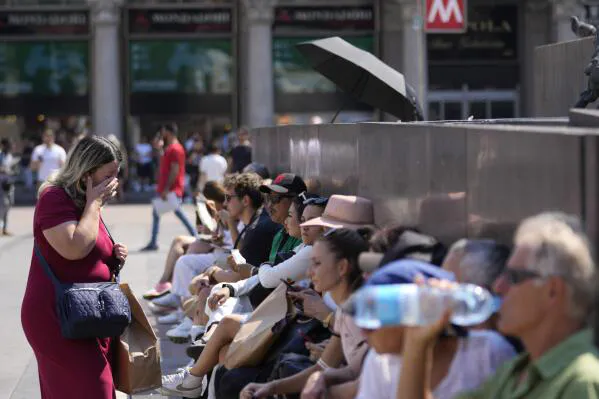About Us
Contact Us
Advertise With Us
Disclaimer
Privacy Policy
Terms & Conditions
Copyright © 2024 - BoldDiscussions.com

Imagine this: you're stuck in a sweltering room with no air conditioning. The heat feels unbearable, making even simple tasks a struggle. Unfortunately, this scenario is becoming increasingly common across Europe, thanks to rising temperatures.
While climate change itself isn't news, a new report sheds light on how it's impacting our health. Here's the lowdown:
On a positive note, researchers are actively seeking solutions. The report emphasizes the need for governments and individuals to work together to create a cooler, healthier Europe for everyone.
Remember, small changes can make a big difference! Here are some ways you can help:
By working together, we can ensure a healthier future for ourselves and generations to come. Let's keep Europe cool!
Disclaimer.
This article provides information only and should not be construed as advice. It is provided without warranty of any kind. Also please note that content on this platform may be subject to copyrighted material. If you believe we have used your content in any way then please get in touch with us. We will take down your content immediately.
Share This Post





BOLDDISCUSSIONS
We Produce Content That informs, Educates And Entertains People Around The World to stay updated on every topic with confidence.
Copyright © 2024 – BoldDiscussions.com

